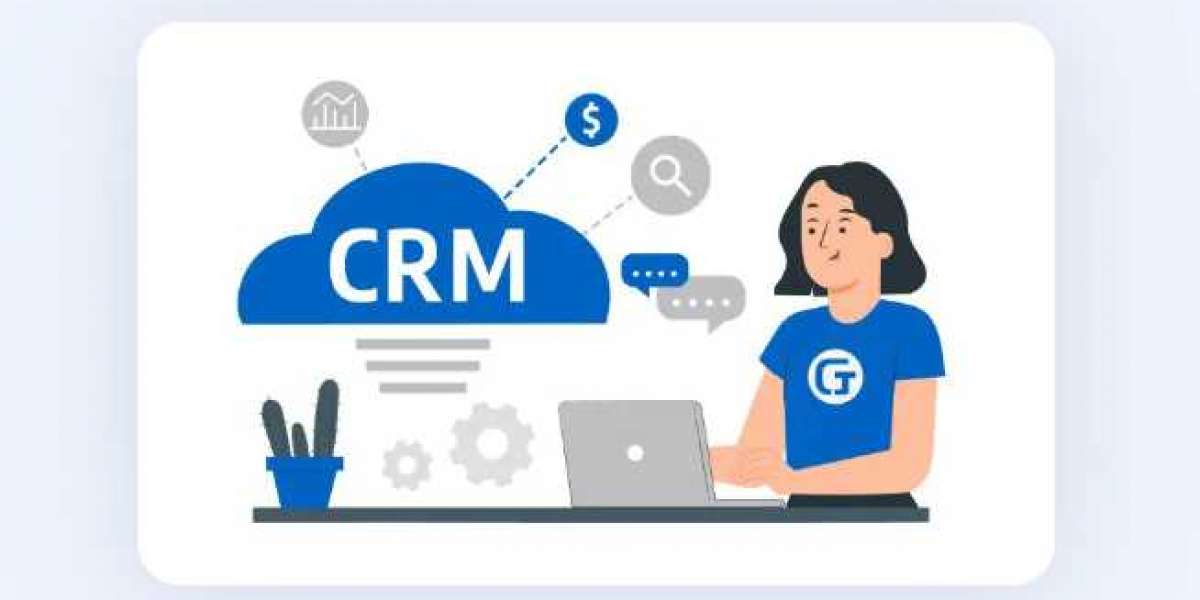In today’s competitive business environment, delivering exceptional customer support is essential for retaining customers and building long-lasting relationships. A Customer Relationship Management (CRM) system plays a pivotal role in this process, offering businesses the tools to manage customer interactions, improve service quality, and streamline operations. While off-the-shelf CRM solutions are widely available, many organizations are opting for a custom CRM tailored to their unique needs. This allows businesses to enhance their customer support and help desk functionality in ways that a standard solution cannot.
In this article, we’ll explore why building your own CRM can be a game-changer for improving customer support, and how it can transform your help desk operations. We’ll also discuss the benefits, key features, and steps involved in creating a custom CRM solution.
Why Building Your Own CRM is a Smart Choice
1. Tailored to Your Business Needs
A major benefit of building your own CRM is that it can be custom-built to meet the specific needs of your business. Off-the-shelf CRM solutions may have a wide range of features, but they might not offer the flexibility to adapt to your company’s unique workflows, customer interactions, or industry-specific requirements.
By developing a custom CRM, you can integrate the features that are most important to your customer support and help desk teams. Whether it’s specific ticketing systems, automated workflows, or customer data management features, a custom CRM ensures your business can optimize its support processes for maximum efficiency.
2. Scalability and Flexibility
As your business grows, so too will your customer support needs. A custom CRM offers the scalability required to handle increased volumes of support tickets, customer interactions, and service requests. You can easily add new functionalities as your business evolves, ensuring that your CRM adapts to changes in your support requirements.
With a custom CRM, you aren’t limited by the constraints of third-party software. The system can be designed to handle complex, evolving workflows and integrate seamlessly with new tools and technologies, giving your help desk the flexibility to adapt to customer demands.
3. Improved Customer Support and Response Time
When customer support teams have access to a CRM system that is tailored to their needs, they can respond faster and more efficiently to customer issues. Custom CRMs can be designed with features like automated workflows, intelligent ticket routing, and advanced analytics to help support teams resolve issues quickly and effectively.
For instance, a custom CRM can categorize and prioritize tickets based on predefined rules, ensuring that high-priority issues are addressed immediately. This boosts response times, reduces waiting periods, and increases customer satisfaction.
4. Enhanced Data Security and Control
Data security is a top concern for businesses handling sensitive customer information. A custom CRM gives you greater control over your data and ensures that security features are aligned with your company’s policies.
Unlike third-party CRMs, which may store your customer data on external servers, a custom-built CRM can be hosted on your own secure infrastructure, giving you full control over access, encryption, and backup processes. This enhances the security of customer data and ensures compliance with industry regulations, such as GDPR and HIPAA.
Key Features of a Custom CRM for Customer Support and Help Desk
When building your own CRM, there are several essential features you should incorporate to ensure the system meets the needs of your support team and customers. Let’s take a closer look at these features:
1. Ticket Management System
A robust ticketing system is the core of any help desk solution. Custom CRMs allow you to build a ticket management system that aligns with your support team’s workflows. Features like ticket categorization, prioritization, assignment, and tracking allow support teams to manage customer inquiries efficiently.
Moreover, ticket tracking can be customized to ensure that no support request is left unaddressed. Automated notifications and escalation processes can help prevent delays and ensure timely responses.
2. Multi-Channel Support Integration
Customers expect to be able to reach support through various channels, including email, live chat, phone, social media, and even text messages. A custom CRM allows you to integrate all these channels into a single platform, making it easier for your support team to handle requests from multiple touchpoints without switching between systems.
For instance, integrating live chat functionality allows your team to respond to inquiries instantly, while email and phone call logs can be captured in one central database for a comprehensive view of customer interactions.
3. Customer Profile Management
With a custom CRM, you can create detailed customer profiles that include essential information such as previous interactions, purchase history, and service preferences. Having this information at hand allows support agents to provide more personalized, proactive service.
A 360-degree view of each customer helps your support team resolve issues more efficiently, without requiring customers to repeat their concerns. Additionally, this information can be used to identify recurring issues, enabling businesses to take preventative action to reduce support requests.
4. Knowledge Base and Self-Service Portal
Empowering customers to help themselves can significantly reduce the workload on your support team. A custom CRM can integrate a knowledge base and self-service portal where customers can find answers to common questions, troubleshooting guides, and product documentation.
This not only improves customer satisfaction but also allows your support agents to focus on more complex issues, rather than answering repetitive queries.
5. Automated Workflow and Task Management
Building a custom CRM gives you the ability to automate workflows and task management processes. For example, certain actions can trigger automatic email notifications, ticket assignments, or follow-ups.
Automating mundane tasks reduces human error and ensures that every customer inquiry is addressed promptly. This can significantly improve the overall efficiency of your customer support team.
6. Analytics and Reporting
To continually improve your customer support operations, it’s important to track and measure key performance metrics. Custom CRM solutions can include analytics and reporting features that give you insights into metrics such as response time, resolution time, ticket volume, and customer satisfaction.
Having access to real-time data allows your management team to identify trends, spot potential issues, and make data-driven decisions to enhance customer support strategies.
7. Integration with Other Tools
A custom CRM can be integrated with other business tools, such as email marketing platforms, sales management systems, and customer feedback tools. This holistic approach ensures that your customer support team has all the resources they need to deliver exceptional service.
For example, integration with a sales CRM can help support agents see the history of a customer’s relationship with your company, making it easier to resolve issues in the context of their overall journey.
Steps to Build Your Own CRM for Customer Support
Now that you know why building your own CRM is a great choice for enhanced customer support, let’s break down the steps involved in developing a custom CRM system.
Step 1: Define Your Requirements
Before you start building your custom CRM, it’s essential to define your specific requirements. Meet with your customer support and help desk teams to identify pain points, inefficiencies, and key features that will improve their work processes.
Consider the following questions:
- What are the specific needs of your support team?
- What type of customer interactions do you need to manage?
- What integrations do you require?
- What kind of reporting and analytics will help you improve your service?
Step 2: Choose the Right Development Team
Building a custom CRM requires a skilled development team with expertise in CRM systems, database management, and software integration. Whether you’re working with in-house developers or outsourcing the project to a development agency, it’s crucial to choose a team with experience in building scalable, secure, and efficient CRM solutions.
Step 3: Design the User Interface (UI)
The user interface (UI) of your CRM system should be intuitive, user-friendly, and easy to navigate for your support agents. The design should focus on streamlining workflows, minimizing the number of clicks, and reducing complexity.
Consider involving your customer support team in the design process to ensure the interface aligns with their needs and preferences.
Step 4: Develop the CRM System
Once the design and requirements are defined, the development phase begins. During this stage, your team will develop the custom CRM solution, integrating features such as ticket management, reporting, knowledge base, and automation. Regular testing is essential to ensure that the system is working as expected and to identify any bugs or issues early on.
Step 5: Implement and Integrate the System
After development, the CRM needs to be integrated with your existing infrastructure, such as customer databases, third-party tools, and communication platforms. This integration ensures a seamless flow of information and a unified experience for your support team.
Step 6: Training and Deployment
Once the CRM is ready, it’s essential to train your customer support team on how to use the system effectively. Providing ongoing support during the initial deployment phase will ensure that any challenges are addressed quickly.
Step 7: Monitor, Optimize, and Improve
After the CRM is deployed, ongoing monitoring is essential to ensure its effectiveness. Gather feedback from your support team and customers, and use analytics to track the performance of your system. Regular updates and improvements will help keep the CRM aligned with your business needs as they evolve.
Conclusion
Building your own CRM for enhanced customer support and help desk functionality offers numerous benefits. From tailored features to better data security, a custom CRM provides the tools needed to improve support team efficiency, deliver exceptional service, and drive customer satisfaction.
While the process of building your own CRM requires time, resources, and expertise, the long-term advantages far outweigh the challenges. By building your own CRM, you create a solution that grows with your business and meets the unique needs of your support team and customers.







